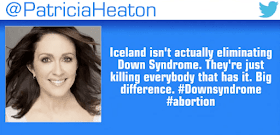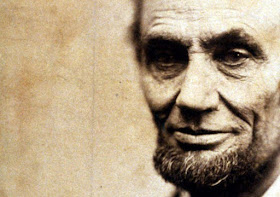Last Tuesday, non-profit clinics that educate people on the health risks of smoking, and help get them the resources to quit, took a southern tobacco-state to federal court.
These clinics are already fighting an uphill battle. They operate in a state that subsidizes tobacco growers by using tax-payer money to buy cigarettes for free distribution. Then, the state enacted another law designed to target anti-tobacco organizations.
 The law requires every quit-smoking clinic to post a government-worded sign, visible to everyone who enters the clinic, that says, “This state has public programs that provide immediate free or low-cost [cigarettes] for eligible [smokers]. To determine whether you qualify, contact the county social services office at [phone number].”
The law requires every quit-smoking clinic to post a government-worded sign, visible to everyone who enters the clinic, that says, “This state has public programs that provide immediate free or low-cost [cigarettes] for eligible [smokers]. To determine whether you qualify, contact the county social services office at [phone number].”The very reason that these clinics exist is out of love for smokers who are overwhelmingly encouraged and pressured to smoke. The last thing they want to do is be the conduit for yet another message that makes smoking more attractive. But not only are they compelled by law to deliver the message, both the size of the print and the number of languages in which it must be printed are also legislated.
Testimony during the law’s passage in 2015 leaves no doubt that its intent is to hamper the work of these clinics. During committee hearings, sponsors of the law testified, “Unfortunately, there are nearly 200 licensed and unlicensed clinics… [which] aim to discourage [smoking and help those seeking to quit].”
The law was passed to ensure that people would not be “confused or misinformed” about their rights to free or low-cost [cigarettes]. It states, “[smokers] should receive information about their rights and available services at the sites where they obtain their care,” – meaning the quit-smoking clinics themselves.
With such a broad aim, you would think that the government-worded signs would be placed wherever health care is received. But the law includes language which exempts thousands of medical clinics so long as they already participate in state programs to distribute cigarettes.
Lawyers for the clinics pointed out that the 200 non-smoking clinics scattered throughout the state comprise more than 98% of the clinics covered by the law, while many thousands are exempt.
Imagine by now: your blood is boiling enough to start writing letters and fighting this grossly unjust and harmful law. All you need is the name of the state where it’s happening.
Please forgive me. I lied.
There is no southern tobacco state that is doing any such thing. Nobody is subsidizing big tobacco. No state is giving away free cigarettes. Nobody is forcing quit-smoking clinics to promote smoking. I made that all up. But I had a lot of help.
 The quotations above are all taken from a different case which actually was argued before the Supreme Court last Tuesday. It was the case of NIFLA v. Becerra. The quotes are verbatim. Only the words in the brackets are changed. There I substituted “quit-smoking” for “pregnancy,” “smokers,” for “women,” and “free cigarettes” for “free abortions.”
The quotations above are all taken from a different case which actually was argued before the Supreme Court last Tuesday. It was the case of NIFLA v. Becerra. The quotes are verbatim. Only the words in the brackets are changed. There I substituted “quit-smoking” for “pregnancy,” “smokers,” for “women,” and “free cigarettes” for “free abortions.” Becerra is the Attorney General of California, which really does use taxpayer money to subsidize the world’s biggest, and most profitable abortion corporation. While the Hyde amendment prevents the federal government from using your tax dollars to pay for abortions, the state of California has no such restrictions. They encourage abortions by paying for them with state funds.
Still, there are over 200 clinics in a population of nearly 40 million, that have no government funding. They operate by the sheer generosity of ordinary people who care about women and children. They have studied the literature and observed their own family and friends who have struggled after abortions.
They have seen for themselves how abortion hurts women and men, children and families. Out of love for these people, and with no hope of profit or gain, they maintain clinics to help complete strangers who come in to talk realistically about the physical, reproductive, emotional and spiritual risks of abortion.
They want to know if there are any viable alternatives, or support networks that can help them if they choose not to get an abortion. Little of this information is volunteered by the state.
It is these clinics that have been targeted by The California Reproductive FACT Act of 2015. This law requires non-profit pregnancy centers, but hardly any other women’s clinics, to deliver a message that they believe is harmful to women and antithetical to their very reason to exist.
The state of California had a tough day at the Supreme Court. Even justices Kagan, Ginsburg, and Sotomayor – typically pro-abortion politicians – expressed loud misgivings about the California law.
The swing-vote on abortion and free speech issues is usually Anthony Kennedy. Even he openly scoffed at California’s lawyer when he suggested that the law could be remanded back to a lower court to iron out the rough spots. Kennedy said, “You want me to have a remand for them to tell the court what a ‘billboard’ is?”
As Nicole Russell wrote in The Federalist, “Hint to California: When you have frustrated Kennedy and Ginsburg with your burdensome, discriminatory law, it’s unlikely to stand.”
Let’s hope she’s right. But the very fact that this law has been enacted at all, and that it has passed numerous court challenges for more than two years is chilling.
I began this article with an extended fable. I spun a yarn about a similarly crazy law meant to protect big tobacco and crush the free speech of quit-smoking clinics. I did this for a good reason.
I know, as well as you, that if I had mentioned abortion in the opening lines of the column, a sizable portion of my audience would have yawned and tuned out the rest of the column. I knew that a state’s compelling speech in favor of tobacco would be outrageous, while a state’s compelling speech in favor of abortion would be blandly approved saying, “well, if it’s the law, it’s the law.”
 This attitude, which approves any state-compelled speech that I want to hear, while only getting worked up if the state compels speech that I don’t like, is totalitarian to the core. It is willing to use the awful power of the state to promote one idea over another. It produces an environment where whoever works the levers of power, determines what is “truth.”
This attitude, which approves any state-compelled speech that I want to hear, while only getting worked up if the state compels speech that I don’t like, is totalitarian to the core. It is willing to use the awful power of the state to promote one idea over another. It produces an environment where whoever works the levers of power, determines what is “truth.”Pontius Pilate lived in such an environment and knew how to work its levers. One day he stood looking the Truth squarely in the face and was not able to recognize Him. All he could manage was a weak-minded and dismissive question, “What is truth?” (John 18:38).
The fact that this case has passed muster in every state and federal court to date, demonstrates just how corrupt our judicial system has become. Worse, the relative silence of our press corps reveals how complicit our newspapers and media outlets have become in taking away our rights of free speech. Are they so naïve as to think that the levers of power will never be used against them?
Perhaps I am wrong. Perhaps I could have started this week’s column with an up-front analysis of how California is forcing pregnancy resource centers to promote the very harm that they exist to reduce. Perhaps the editorial staff of this paper would have used its own freedom of the press to editorialize against the law even if they disagree with the message of pregnancy clinics.
I would like to think so. I guess we’ll just have to wait and see. Until they do, it is up to us to stand against government-compelled speech wherever it may be found. It is our fundamental line of defense of the truth, against the exercise of raw, governmental power.
















